The Supreme Court of the United States (SCOTUS) went into overdrive on guns this week, handing down several consequential decisions we’ve been waiting months to see.
In Mexico’s $10 billion liability case against Smith and Wesson over cartel violence, SCOTUS delivered a unanimous ruling. It tossed the case in its first decision, weighing in on the shield offered to the gun industry by the Protection of Lawful Commerce in Arms Act (PLCAA).
In the pair of hardware ban cases that the Court had relisted for consideration 15 times, though, the outcome was quite different. It declined to hear a challenge to Rhode Island’s magazine ban and confiscation law. It also denied a request to hear the case against Maryland’s AR-15 sales ban. But, as I explain for members, statements offered up on the latter case give new insight into where the Court might ultimately come down on the constitutionality of those kinds of bans.
We also saw gun sales tick down again in May, as reported by our new summer intern from the National Journalism Center. Citigroup backed off its post-Parkland gun policies under pressure from President Donald Trump’s administration. Attorney General Pam Bondi sent a letter to PA officials demanding that more counties process out-of-state gun carry permit applications. Oh, and I explain what Texas is doing with sawed-off shotguns.
Plus, Gun Owners of America’s Sam Paredes joins the podcast to explain how his group’s legal fight with the ATF led the agency to add more CCW permits to the Brady alternative list. And we’ve got lots of other stories from outside The Reload down in the links, including a federal ruling on Colorado’s age restrictions.
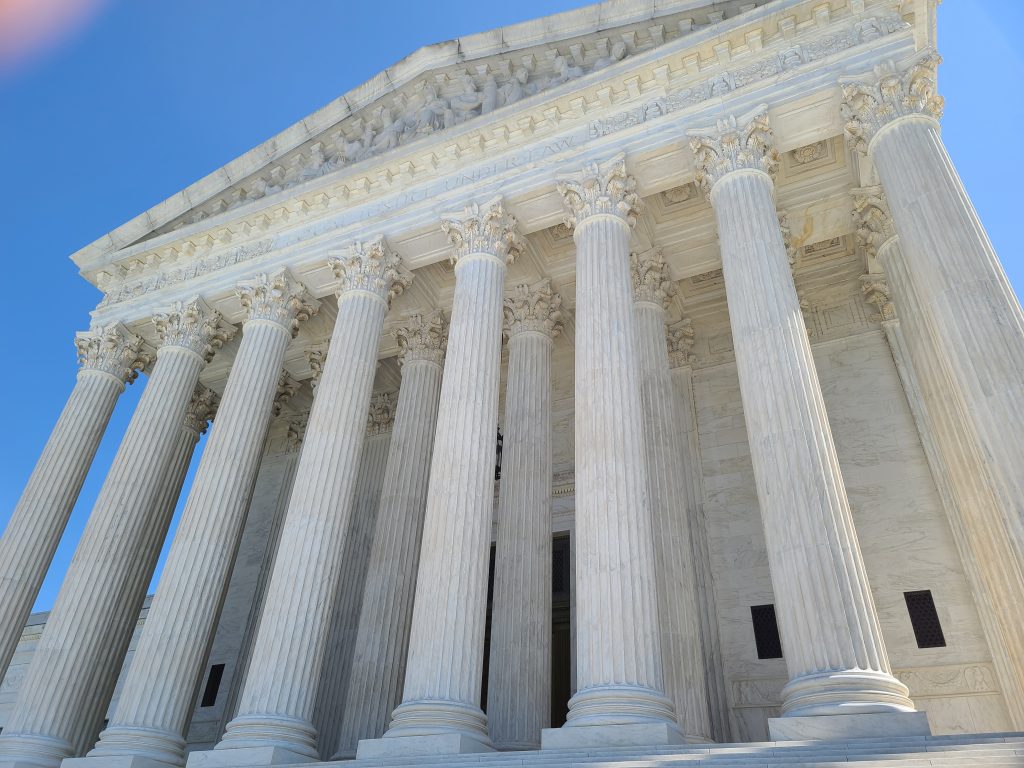
Supreme Court Unanimously Tosses Mexico’s Suit Against Smith & Wesson
By Stephen Gutowski
American gun makers are not liable for cartel violence carried out with their products in Mexico.
That’s the conclusion of a unanimous ruling the Supreme Court of the United States (SCOTUS) handed down on Thursday. The Court ruled Mexico’s government failed to show the actions of Smith & Wesson or the other named gun companies aided and abetted Mexican criminals in their efforts to illegally obtain guns. It concluded that meant the country’s $10 billion liability suit was barred from moving forward by the Protection of Lawful Commerce in Arms Act (PLCAA), which prevents suits designed to hold gun companies responsible for the criminal acts of third parties they weren’t directly involved in.
“The kinds of allegations Mexico makes cannot satisfy the demands of the statute’s predicate exception,” Justice Elana Kagan wrote for the Court in Mexico v. Smith and Wesson. “That exception permits a suit to be brought against a gun manufacturer that has aided and abetted a firearms violation (and in so doing proximately caused the plaintiff’s harm). And Mexico’s complaint, for the reasons given, does not plausibly allege such aiding and abetting. So this suit remains subject to PLCAA’s general bar: An action cannot be brought against a manufacturer if, like Mexico’s, it is founded on a third party’s criminal use of the company’s product.”
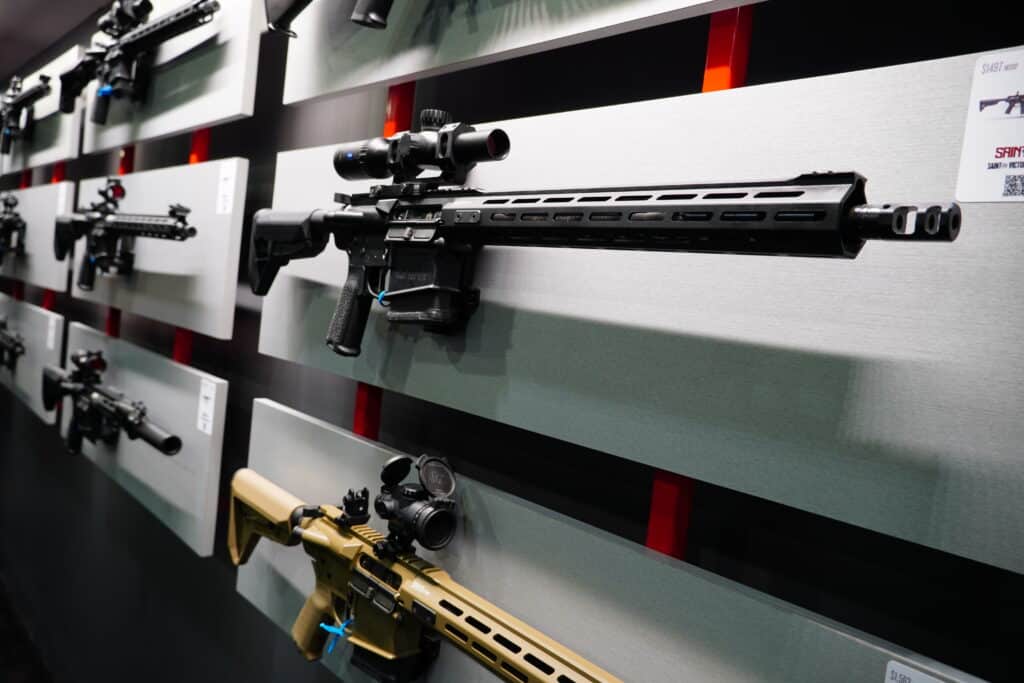
SCOTUS Declines AR-15, Magazine Ban Cases While Kavanaugh Promises Action Soon
By Stephen Gutowski
The Supreme Court of the United States (SCOTUS) rejected two major Second Amendment challenges on Monday.
In its morning order list, SCOTUS denied certiorari in Snope v. Brown and Ocean State Tactical v. Rhode Island. Those were appeals of lower court rulings upholding Maryland’s AR-15 sales ban and Rhode Island’s magazine capacity limits, respectively. While the Court had relisted the pair of cases 15 times before ultimately denying them, the only explanation offered by any of the Justices said more time is needed for the High Court to decide the issues.
“Opinions from other Courts of Appeals should assist this Court’s ultimate decisionmaking on the AR–15 issue,” Justice Brett Kavanaugh wrote in a statement on the Snope denial. “Additional petitions for certiorari will likely be before this Court shortly and, in my view, this Court should and presumably will address the AR–15 issue soon, in the next Term or two.”
Click here to continue reading.
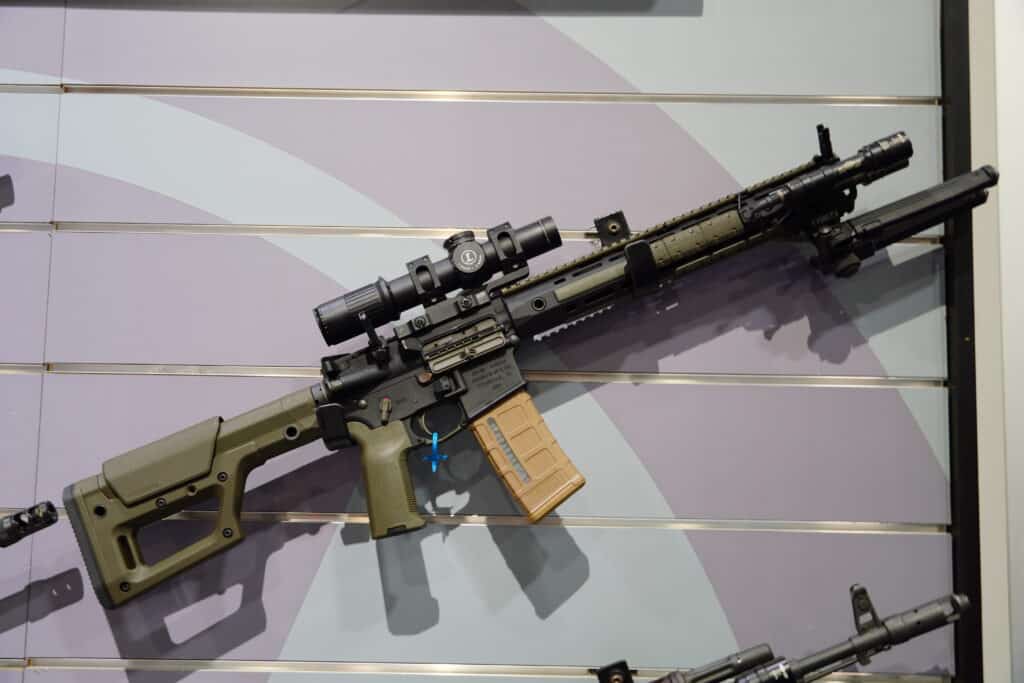
Analysis: Did SCOTUS Just Tip Its Hand on AR-15 Bans? [Member Exclusive]
By Stephen Gutowski
Several of the actions the Supreme Court took on guns this week may show where it’s going to end up on “assault weapons” bans.
Certainly, denying cert in Snope v. Brown provides the most straightforward message: the Court isn’t in a rush to rule. But several lines from that denial, as well as one from the Court’s ruling in Mexico v. Smith and Wesson, provide some insight into the intentions of a majority of justices.
Most importantly, we have a statement from one of the justices who voted to deny Snope’s challenge to Maryland’s ban on the sale of AR-15s and similar firearms.
If you’re a Reload Member, click here to read more. If not, buy a membership today to get exclusive access!

Citigroup Reverses Post-Parkland Gun Policy Under Pressure From Trump
By Jake Fogleman
One of the country’s largest financial institutions is reversing course on its stance toward the firearms industry.
Citigroup announced on Tuesday that the bank was ending its seven-year-old U.S. Commercial Firearms Policy that restricted its services to businesses that sell bump stocks, “high-capacity” magazines, or firearms to adults under the age of 21. The company said it was doing so in response to regulatory developments, President Donald Trump’s recent executive orders, and political concerns about “fair access” to banking services.
“We will no longer have a specific policy as it relates to firearms,” Ed Skyler, Citigroup’s Executive Vice President of Enterprise Services and Public Affairs, wrote in a post explaining the policy change.
Click here to read the full story.
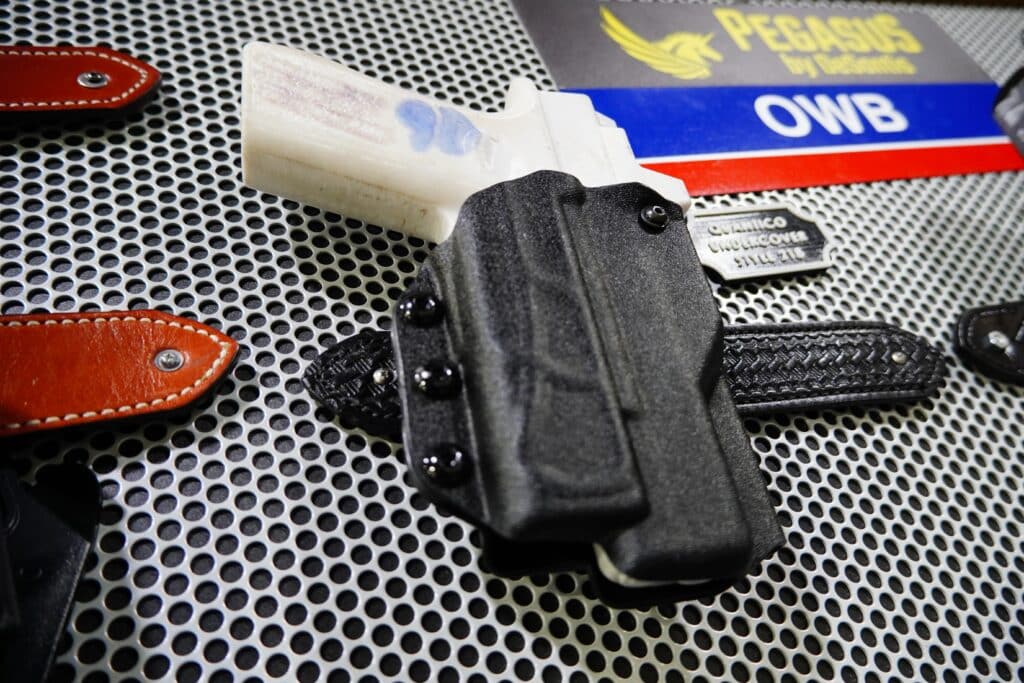
DOJ Tells PA Sheriffs to Start Issuing Concealed Carry Permits to Non-Residents
By Stephen Gutowski
Attorney General Pam Bondi (R.) wants Pennsylvania sheriffs to issue concealed carry permits to qualified non-residents.
In a letter to Pennsylvania Attorney General David Sunday (R.) and Pennsylvania Sheriffs Association president Sean Kilkenny (D.), Bondi argued some sheriffs’ refusal to issue the permits violates non-residents’ gun rights. She warned the practice could lead the Department of Justice (DOJ) to intervene.
“This practice is unlawful under Pennsylvania law,” Bondi wrote last month. “It also raises serious concerns under the Second Amendment, which guarantees the right to bear arms in public, as well as the Privileges and Immunities Clause, which prohibits discriminating against out-of-state citizens by denying them the exercise of fundamental rights.”
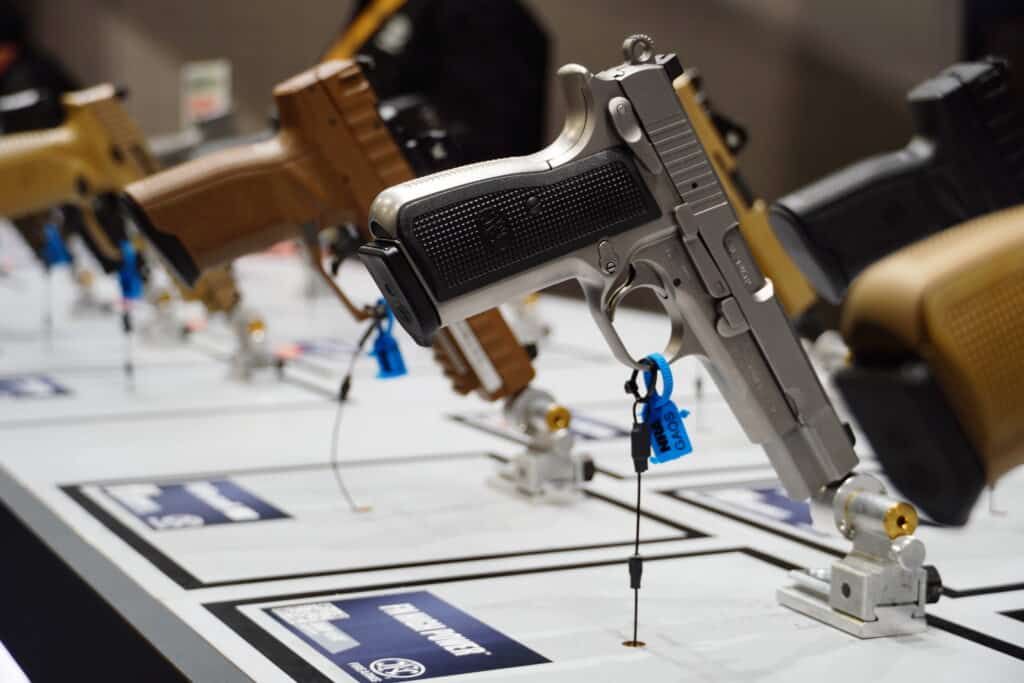
Gun Sales Continue Decline in May
By Benjamin Owen
The number of FBI background checks associated with gun sales fell again last month, according to a new industry report.
Gun sales-related background checks declined 1.6 percent year-over-year in May. That’s the topline conclusion of the National Shooting Sports Foundation’s (NSSF) latest analysis. The NSSF found that the number of National Instant Criminal Background Check System (NICS) checks fell from 1.089 million in May 2024 to 1.071 million in May 2025, making this May the worst-performing May for the gun industry since 2019.
The decline comes as the gun market has been in an overall downward trend in the gun market throughout 2025, as sales continue to decline to pre-pandemic levels. The market saw year-over-year declines in checks during February, March, and April. February was the second-worst-performing February in the last 13 years, with sales declining by nine percent. 2025’s first quarter was the worst of the past five years as checks fell near pre-pandemic levels.
Podcast: GOA’s Sam Paredes on the ATF Changing Course of Background Check Bypass Permits
By Stephen Gutowski
This week, we’re talking about an under-discussed part of federal gun law and a significant recent update to it.
GOA’s Sam Paredes joins the podcast to walk through the years-long legal fight. He lays out how GOA plans to lobby states to change their laws to qualify for the alternative status. He also said GOA plans to file follow-up suits to get ATF to recognize even more permits.
You can listen to the show on your favorite podcasting app or by clicking here. Video of the episode is available on our YouTube channel.
Plus, the Tenth Circuit rules on the other kind of domestic violence restraining order that triggers a gun ban. However, it comes to the same conclusion that the Supreme Court did in US v. Rahimi: the ban doesn’t violate the Second Amendment. The ATF also announced two significant moves, one replacing their “zero tolerance” dealer inspection policy and another expanding “Brady permits.”
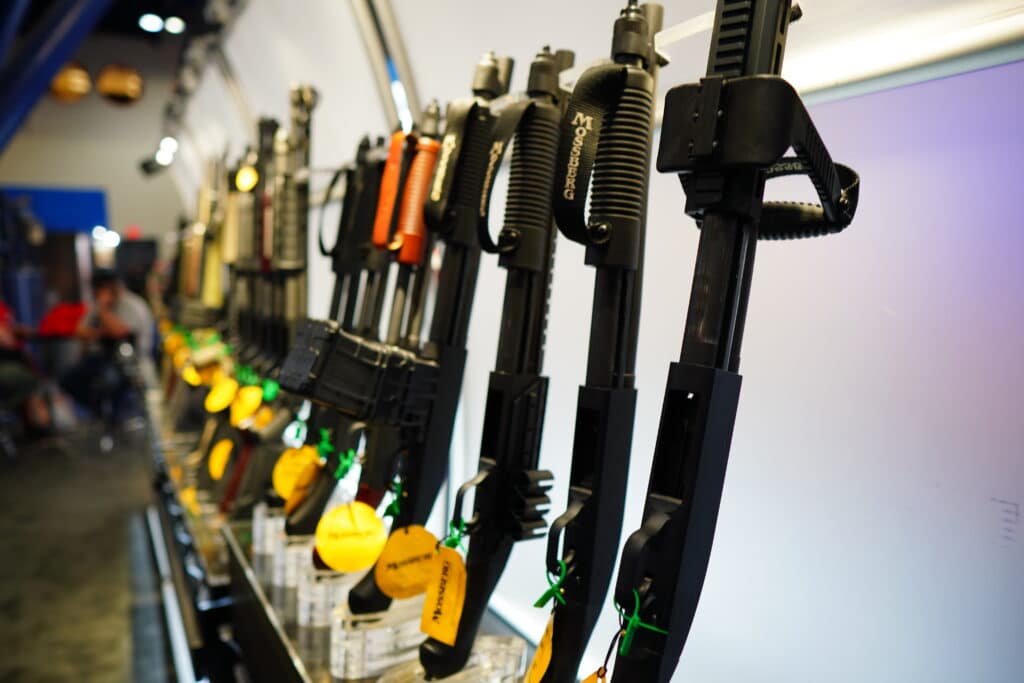
Analysis: What Does Texas ‘Legalizing’ Sawed-Off Shotguns Actually Accomplish? [Member Exclusive]
By Stephen Gutowski
This week, the Texas legislature made a curious move on gun policy.
They sent SB 1596, a short-barrel shotgun and rifle legalization bill, to Republican Governor Greg Abbott’s desk, where he’s likely to sign it. But that legalization is less expansive than people might assume. That’s because it only impacts state law, and Texans will still have to comply with federal short-barrel firearm regulations.
However, it may end up as something more than a symbolic act because of what’s going on in Congress. And it is an initiative gun-rights activists will need to recreate in a number of other states if they want silencer deregulation to stick.
If you’re a Reload Member, click here to read the rest. If not, buy a membership for exclusive access to this and hundreds of other stories!
Outside The Reload
Judge upholds Colorado’s under-21 firearm purchase ban | Courthouse News Service | By Gabriel Tynes
Nevada governor vetoes bill banning under 21s from owning certain guns | KOLO | By Kevin Sheridan
NSSF Comes Out Swinging Against Proposed ATF, DEA Merger | Bearing Arms | By Cam Edwards
That’s it for this week in guns.
I’ll see you all next week.
Thanks,
Stephen Gutowski
Founder
The Reload






